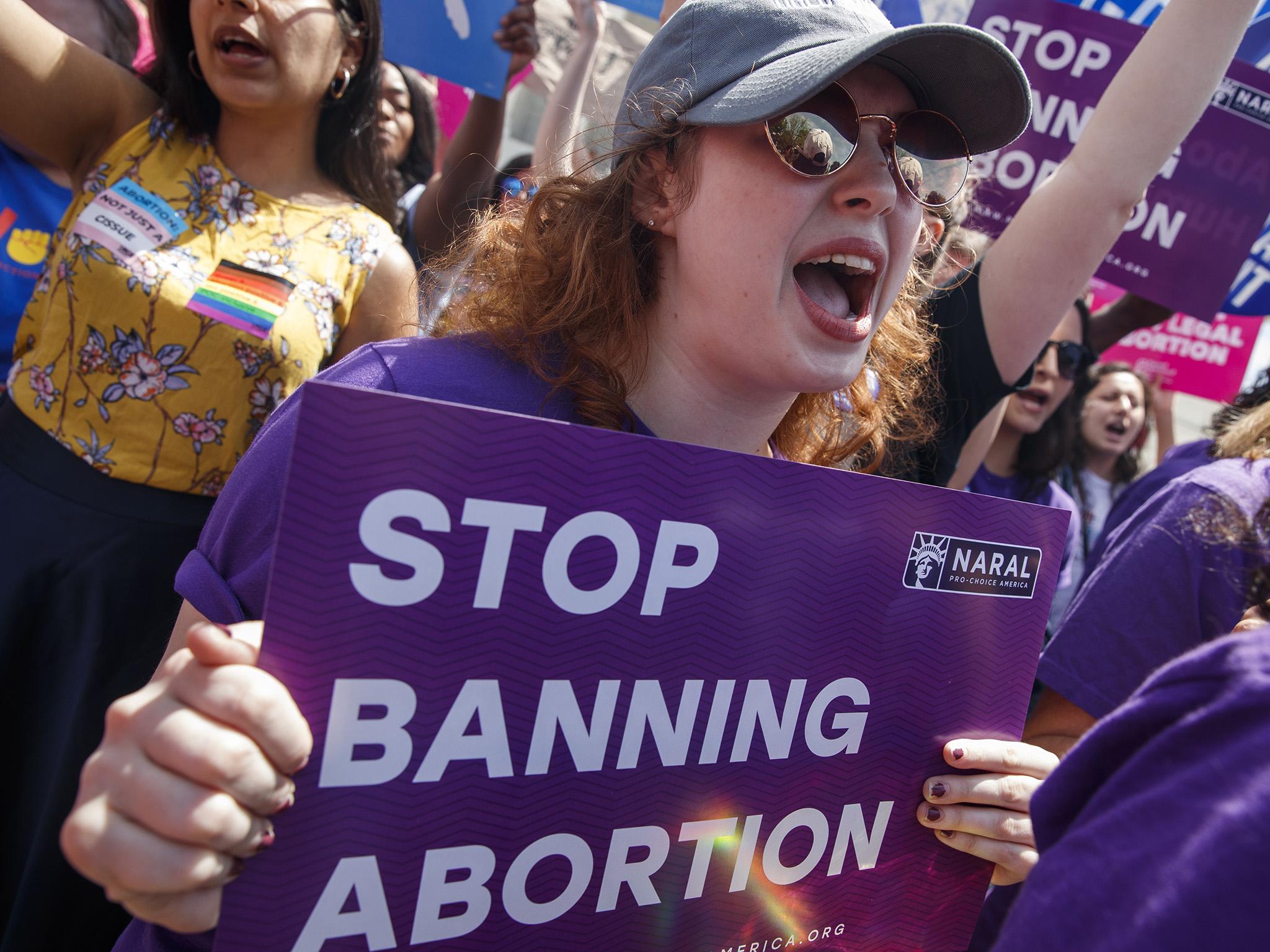Women to be banned from seeking abortions in South Carolina even in cases of rape or incest
More than a dozen measures restricting terminations have been passed across the US this year

Your support helps us to tell the story
From reproductive rights to climate change to Big Tech, The Independent is on the ground when the story is developing. Whether it's investigating the financials of Elon Musk's pro-Trump PAC or producing our latest documentary, 'The A Word', which shines a light on the American women fighting for reproductive rights, we know how important it is to parse out the facts from the messaging.
At such a critical moment in US history, we need reporters on the ground. Your donation allows us to keep sending journalists to speak to both sides of the story.
The Independent is trusted by Americans across the entire political spectrum. And unlike many other quality news outlets, we choose not to lock Americans out of our reporting and analysis with paywalls. We believe quality journalism should be available to everyone, paid for by those who can afford it.
Your support makes all the difference.South Carolina Republicans have voted to strip protections for victims of rape and incest from an abortion bill which would ban the procedure after around six weeks of pregnancy.
The proposed legislation initially included an exception for women who became pregnant after such abuse.
On Thursday the state senate subcommittee on medical affairs chose to strip the exception from the bill, before approving the draft law by a 4-3 vote. The full state senate must still pass the bill before it becomes law.
The subcommittee’s decision was instantly condemned by rights groups.
“Let the legislators know ... that this is not what South Carolina wants,” said Susan Dunn, interim director of the state chapter of the American Civil Liberties Union (ACLU).
The proposed bill is the latest attack on abortion rights throughout the US. If passed, doctors will face criminal charges for performing abortions after a foetal heartbeat is detected.
Heartbeats are typically heard after the sixth week of pregnancy, before many women know they’re pregnant. The effect of such legislation is to effectively outlaw the majority of terminations.
“You are in fact killing an innocent human being,” claimed Richard Cash, the state senator who proposed removing protections for rape and incest victims.
“Whether you mean to or not, you are punishing a person wrongfully for something he or she had nothing to do with.
“Anyone who is alive who was conceived in rape would probably be very glad that they are alive and would probably be very willing to discuss and argue with you about their right to life while in the womb.”
The exceptions were initially added after Nancy Mace, another Republican state senator, spoke about how she was raped at the age of 16.
If the measure is passed by the legislature it will be sent to Republican governor Henry McMaster’s desk for signing.
Mr McMaster has said he will sign the bill into law if it is passed.
“Those of you who will applaud after this vote, your applause will be temporary,” said Marlon Kimpson, a Christian Democrat.
Mr Kimpson has vowed to delay a final vote on the proposed legislation.
The controversy follows a wave of 17 abortion bans being passed across 10 states in just this past year, according to an analysis of the Guttmacher Institute.
The South Carolina bill does include an exemption in cases where pregnancy may risk the life of the mother.
“This medically unnecessary hoop to jump through is just another example of the legislature of South Carolina trying to control women, in any way possible,” the ACLU of South Carolina wrote on its website.
At a news conference following the hearing, women’s rights advocates promised strong opposition to the proposed ban during the upcoming legislative session.
“The bill currently being advanced is radical insofar as it does not respect our diverse faiths and philosophies ... and that life’s most difficult choices are more suited to private conversations between a patient and their doctor than to State House subcommittee rooms full of strangers,” said Jeremy Rutledge, senior minister at Circular Congregational Church in Charleston.
The wave of anti-abortion legislation is at the heart of an effort by conservatives keen on bringing the issue before the Supreme Court.
There, they hope, they may finally realise their dream of repealing some or all of the landmark Roe v Wade decision which largely legalised abortion in the country.
Additional reporting by agencies
Join our commenting forum
Join thought-provoking conversations, follow other Independent readers and see their replies
Comments